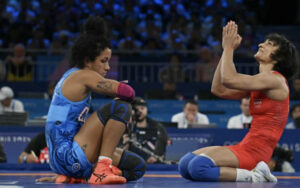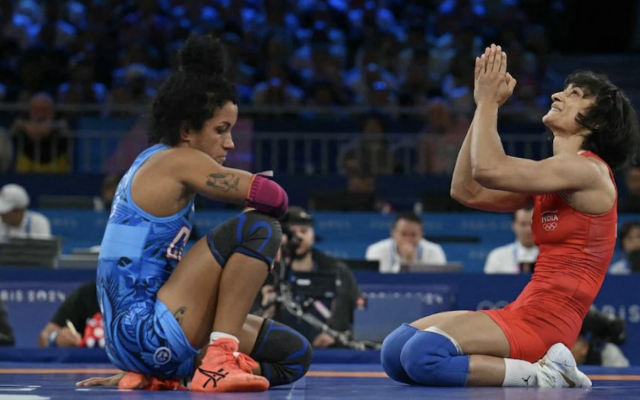
As we still await the sole arbitrator’s decision in the Vinesh Phogat versus UWW and IOC case, I write this article from the perspective of gender sensitivity. Somebody who knows a good deal about diet had told me — you know, the intermittent fasting rules have been created keeping the male system in mind. As with so many other things in life, the paradigm is a male one. But the fact of the matter is male and female bodies are vastly different. Female bodies are what they are because of our hormones which take us on widely varying trips depending on what time of month we are in.
Male bodies are NOT on this monthly cycle. So, effectively, male and female bodies will gain and lose weight DIFFERENTLY because of this hormonal cycle. Women also have a bigger gut than men, and women’s gut health rules a lot else about them. So what happens to a woman’s gut health when she goes on extreme schedules in her prime? When she stringently denies herself food, when she starves and dehydrates herself? I shudder to think what happens to her during those pre-menstrual days when you might get more thirsty than usual or crave a bit of this and that by way of food, which, effectively, is your body asking for its well-being.
But that’s exactly how it appears from the spotlight in the Vinesh Phogat case. This is a regime, which goes from strict to gruelling and punishing when these athletes get closer to their competitions.
For the Latest Sports News: Click Here
BREAKING 🚨
Again the case has been extended 16 August 6pm Paris time.
@Phogat_Vinesh @BoriaMajumdar #VineshPhogat pic.twitter.com/D4gP8YKdaM
— RevSportz Global (@RevSportzGlobal) August 13, 2024
Athletes in most sports, especially if they are high-performing, are on strict diets. But what emerges from the entire weight cut issue centring on Vinesh has an element of the inhuman to it. No food and perhaps just a few drops of water in the 48 hours leading up to your competition, and then if you have hydrated and eat a recovery meal before or after your fight, then you stay up the whole night in the sauna or gym, or sparring — trying to shed that natural weight which kicks in. No relenting and no rest.
And the fact of the matter is it’s the same rules that apply to men and women. And while it’s equally gruelling for both — male and female systems will respond differently. Especially depending on where the woman is in the menstrual cycle.
Her body will revolt against this endeavour — probably what had happened in Vinesh’s case when she was unable to drop the last 100 gms despite inhuman efforts through the night.

Long-term: Is there a life after medals? Is there a life beyond competitions? Is there mental health in and around these competitions? What can such drastic practices eventually do to a woman’s health (or man’s health for that matter) and her lifespan? Her ability to have children? Her larger health as she enters the critical peri-menopause stage. Is there enough awareness of these issues? Do athletes themselves take cognisance when they push themselves to the extremes?
Drastic weight cut is not a sustainable practice in any field, whether in sports or fashion or any other. And it can end in disastrous situations, possibly even endangering the athlete and her lifetime’s endeavours, as in Vinesh’s case.
This case is important because it screams out for a revisiting of the rules. I would argue that possibly there is a case here for making them gender sensitive as well. It’s not just about granting somebody a medal on the back of a popular upsurge — it’s about ensuring the well-being of athletes and their endurance long-term. Of taking account of different bodies and of how nature has bestowed us.
Also Read: Silver medal or not, the Vinesh Phogat case could be a catalyst for positive change




